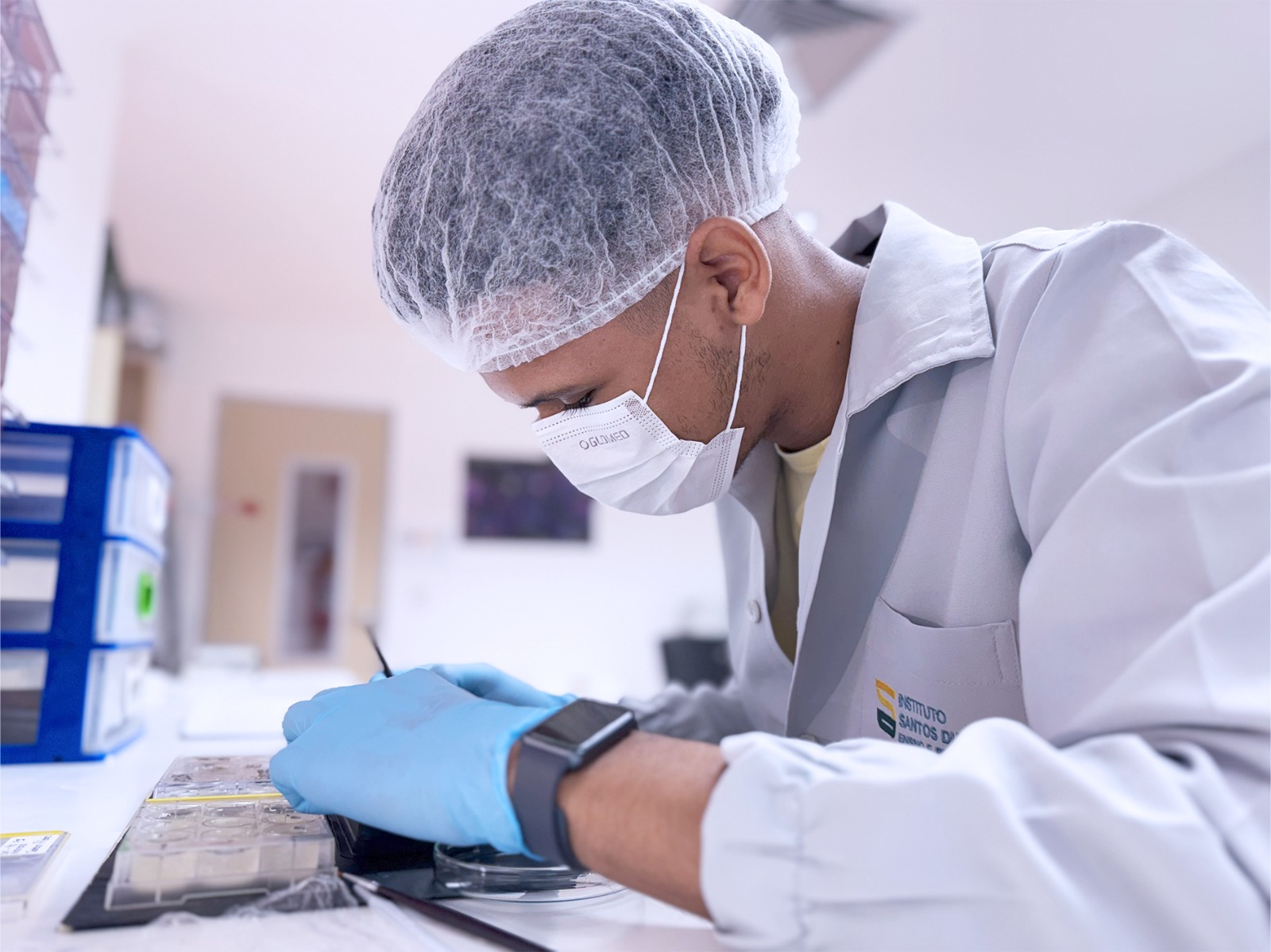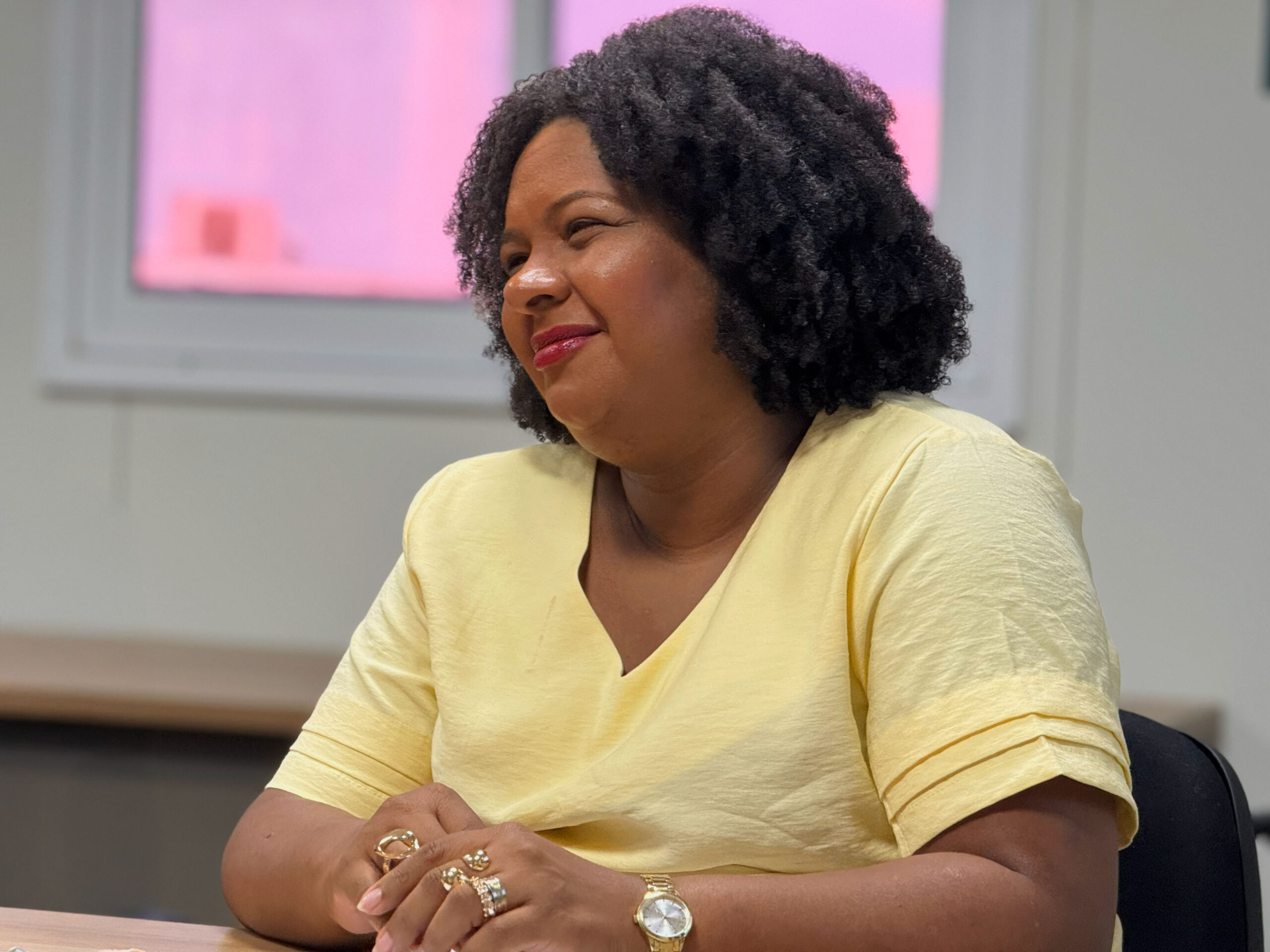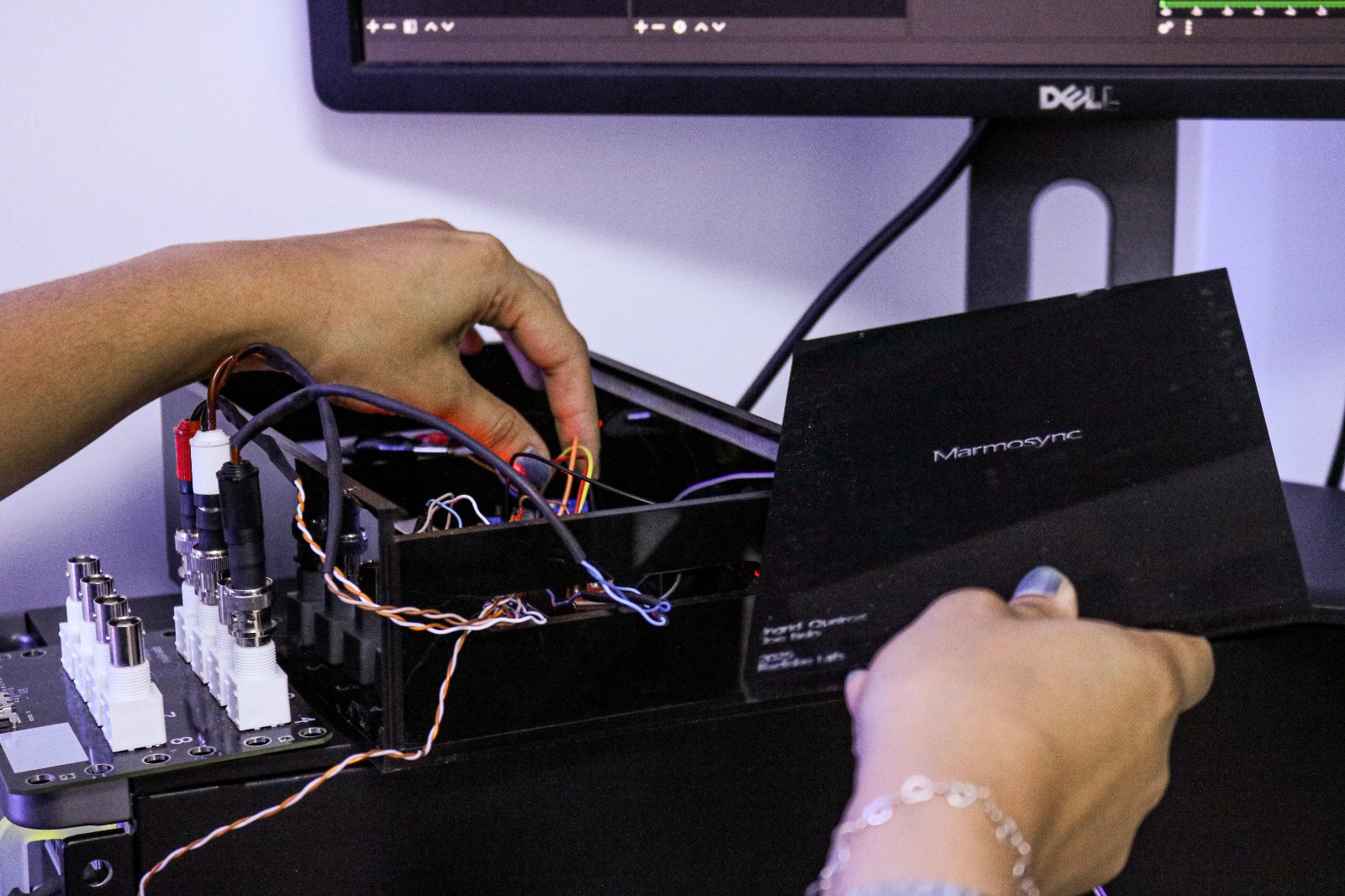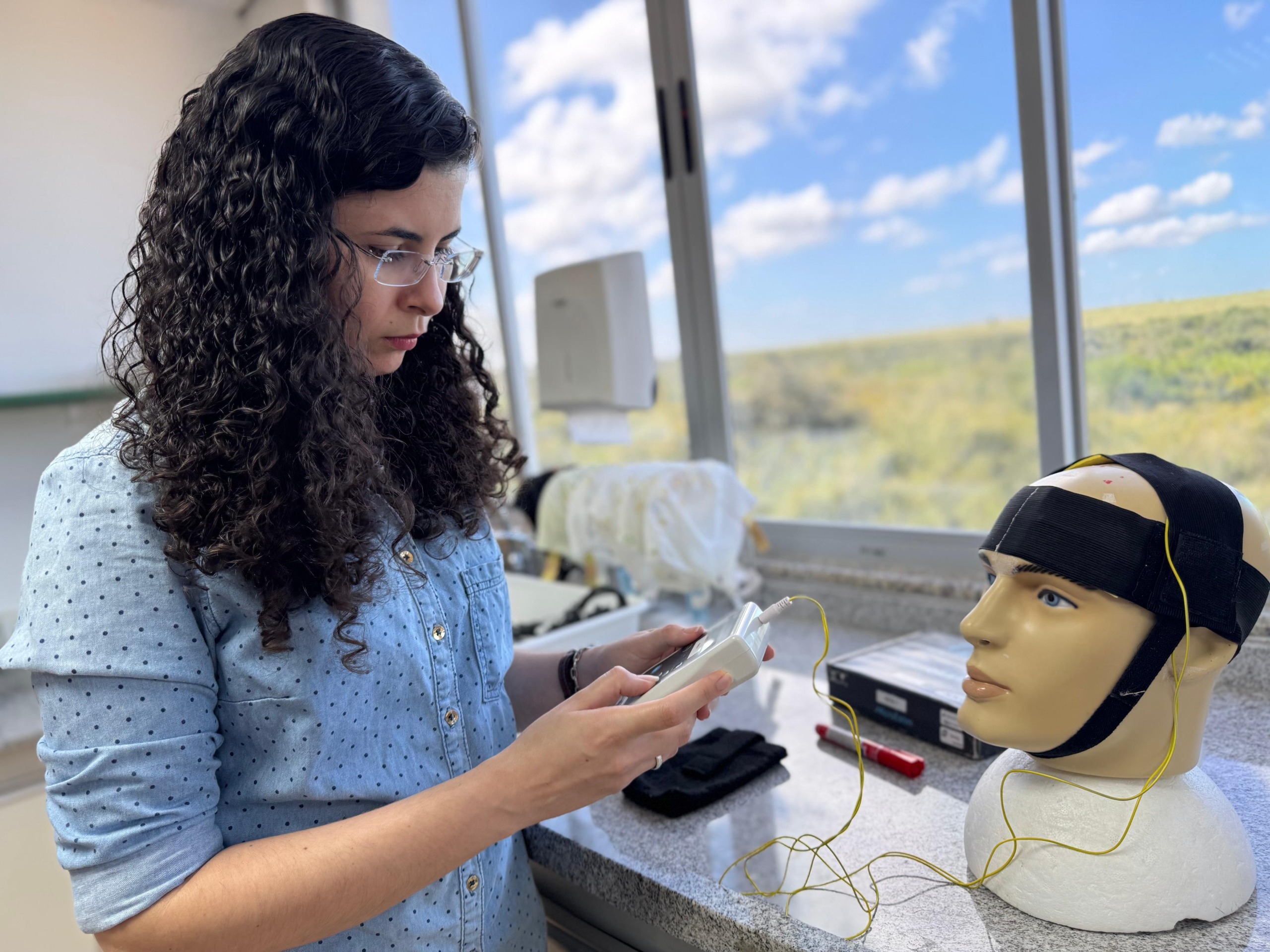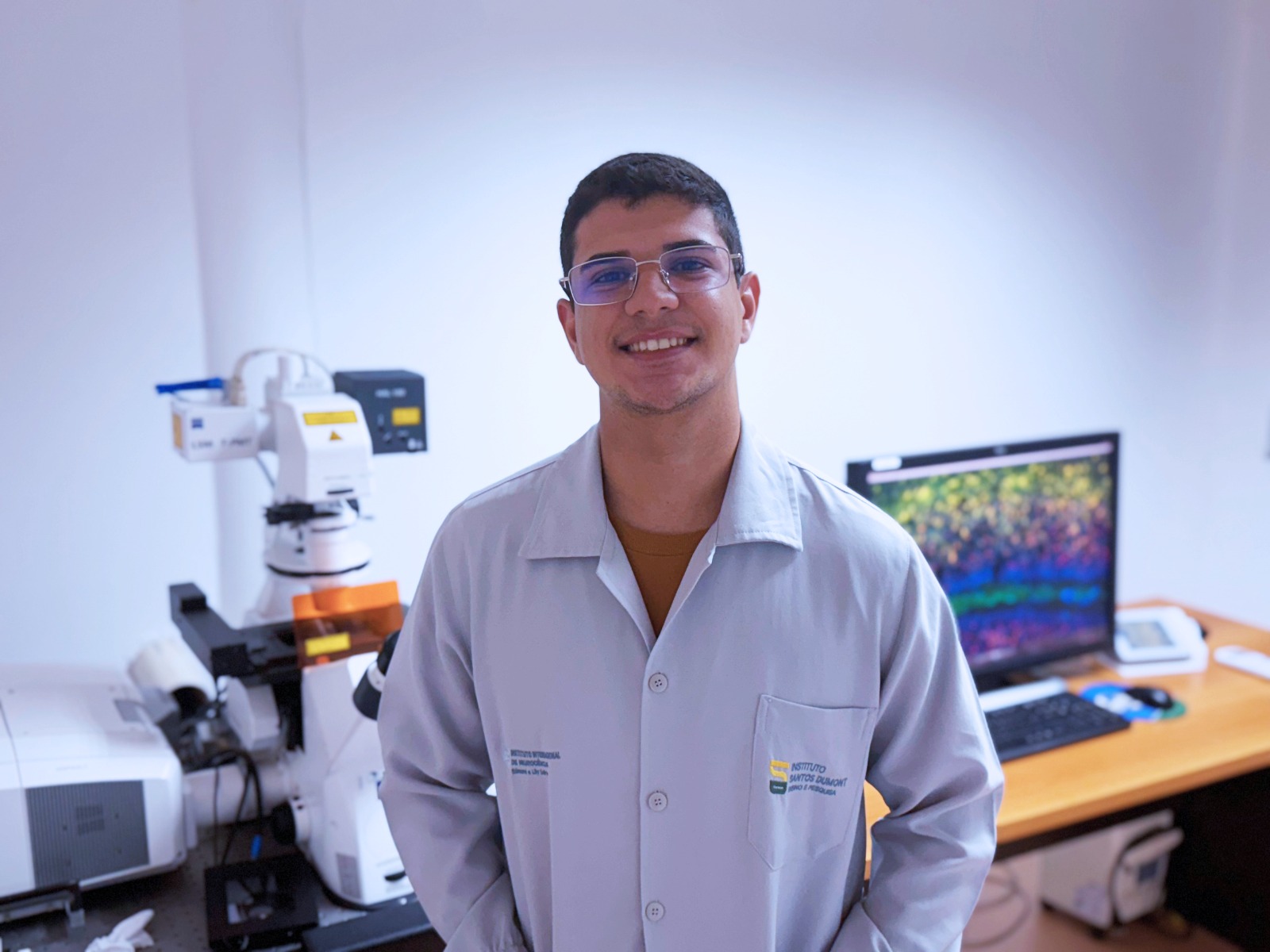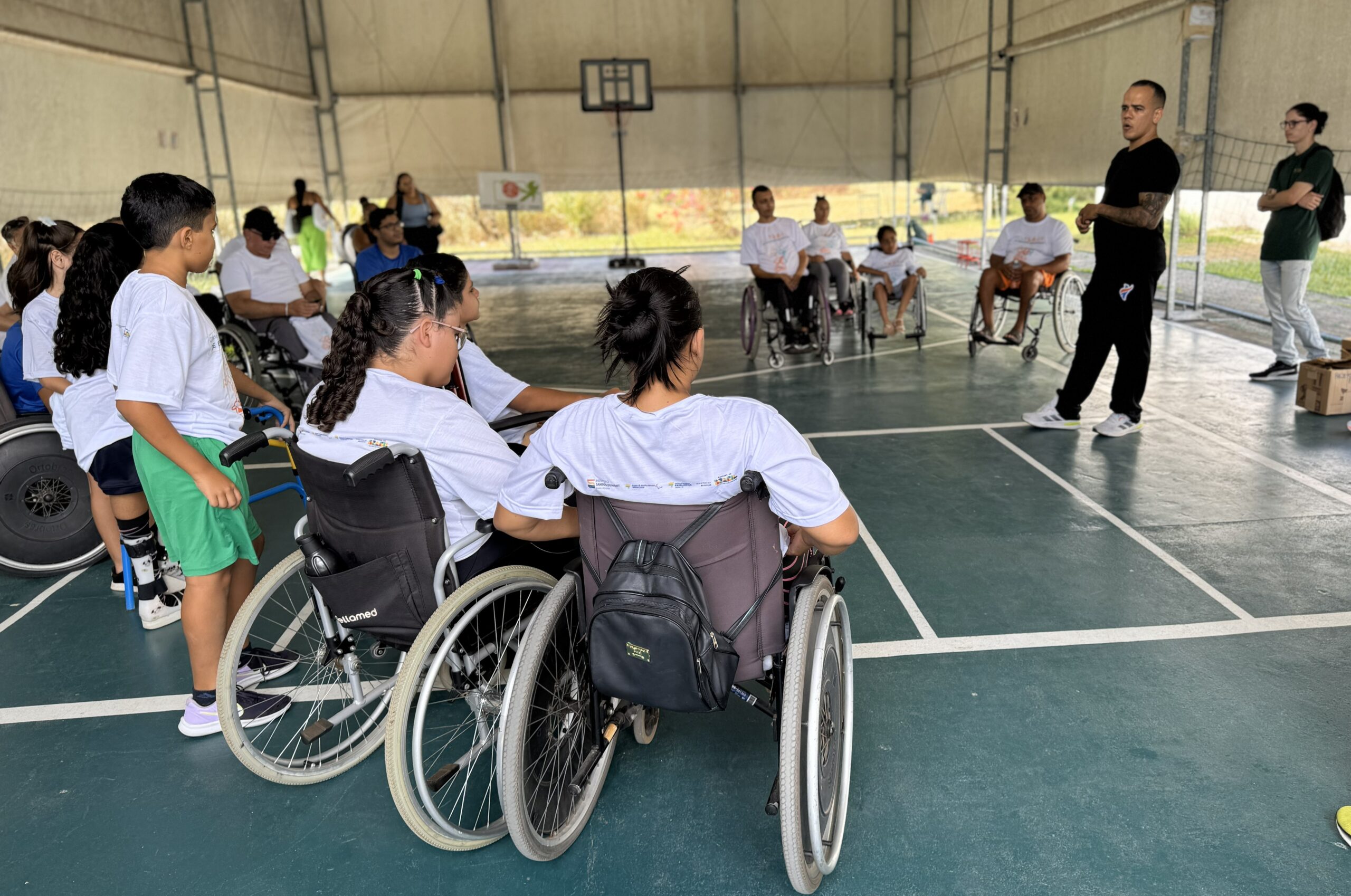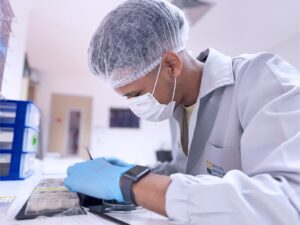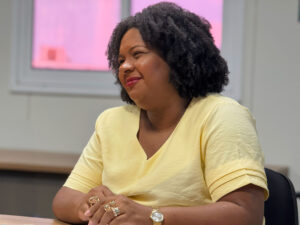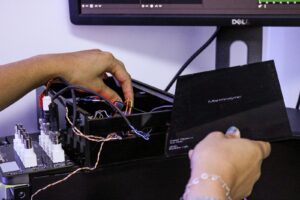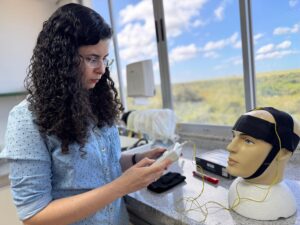Despite being a video game lover, 35-year-old para-athlete José Francisco Ferreira de Carvalho, known as 'Dedé', had never played a game in his life that took his specific needs into account. Dedé is one of the 45 million Brazilians who, according to the most recent data released by the Brazilian Institute of Geography and Statistics (IBGE), have a physical disability. In 2020, that changed: he was one of the para-athletes who tested IVr Boccia, a virtual reality game developed by students at Instituto Santos Dumont (ISD), in Macaíba, which simulates bocce, with the aim of helping practicing para-athletes of the sport, at the same time that it contributes to the rehabilitation of users. On Tuesday (27), the National Institute of Industrial Property (INPI) granted the registration of a computer program to the game, which must now be improved so that it becomes accessible to the population.
João Paulo Bezerra Fernandes, 26, started programming IVr Boccia in 2018 to help paralyzed athletes like Dedé, in 2018. “The program was done while I was still in Scientific Initiation at the Instituto Internacional de Edmond and Lily Safra Neurosciences. At the end of that year, I presented my undergraduate thesis with that program and, in 2020, I entered the Master's with the intention of continuing work in this area”, says João Paulo.
He explains that the interest in developing a virtual reality system aimed at people with disabilities arose from the shortage identified in the production of entertainment for this population. “There is a very large gap in the scientific literature with regard to entertainment aimed at people with disabilities. The idea was to try to help fill it, developing something that would entertain those who don't necessarily practice the modality, but that would also be useful for para-athletes”, completes the researcher.
The project was made using Neuroengineering concepts as a basis, such as the simulation of situations in controlled environments, which allow the stimulation of brain regions without necessarily leaving the place where the individual is. In this way, the system would also be able to assist in the rehabilitation of people with disabilities. “The virtual reality sensors vibrate at certain moments of the game, so the athlete feels these vibrations and also has these perceptions of movement”, he explains.
The main challenge faced by scientists to popularize the already registered technology is to make production cheaper and more accessible to the population. The need became even more urgent in the pandemic, when many para-athletes, like Dedé himself, had to interrupt training to protect themselves against covid-19. “In times of social distancing, this technology would allow them to continue training at home. You keep doing the moves, but you don't need the balls, for example. In addition, as the game collects data, they could be sent directly to the coach so that he could analyze the movements and assess the progress of that individual”, says João Paulo.
Currently, the hardware, which consists of the pieces that make up the game, has a cost that can vary from R $3 thousand to R $6 thousand reais. O software, that is, the program produced by the students, is free. “This patent gives us a lot of encouragement because it proves that, with effort, we can produce technology to really change people's lives. Not only that of the para-athletes we work with, but also our lives as scientists, who now have a different view of our target audience and the technologies we are producing”, he says.
the boules
Paralympic bocce is a modality that arrived in Brazil around the 1970s. The game consists of throwing colored balls as close as possible to a white ball. It can be practiced by paralyzed athletes with a high degree of cerebral palsy, or with severe motor disabilities. In 1984, the game made its first appearance at the Paralympics, and it hasn't stopped gaining fans ever since.
Born with arthrogryposis, a muscle malformation that affects babies and causes movement limitations in the upper and lower limbs, Dedé spent most of his life not knowing the sport, but after he was introduced to the game by a friend in 2013, he did not abandoned the mod. “We had to interrupt training because of the pandemic, but we intend to return at the end of August. It's something that does us all a lot of good, because it involves leisure, sport, teamwork”, he reports.
He also comments that the experience with the virtual reality of the IVr Boccia was “surprising”. “I'm crazy about video games, so I quickly got the hang of it, even though I'd never seen virtual reality before. It was amazing, very well done. In addition to practicing the sport, it allows many people with disabilities to get to know the game better”.
According to João Paulo, the use of virtual reality technologies can even be a technique to help patients engage in rehabilitation treatment. In the case of IVr Boccia, it also helps to promote a para-sport that can gain new fans. “If there is a company that develops games for people without physical disabilities thinking about how to improve specific skills, we can do the same thinking about the public with disabilities, and that is what we want to do, looking at this public, their needs, and how to meet them in the same way. best possible way combining this with entertainment”, he underlines.
Text: Mariana Ceci / Ascom – ISD
Photograph: Mariana Ceci / Ascom – ISD
Communication Office
comunicacao@isd.org.br
(84) 99416-1880
Santos Dumont Institute (ISD)
It is a Social Organization linked to the Ministry of Education (MEC) and includes the Edmond and Lily Safra International Institute of Neurosciences and the Anita Garibaldi Health Education and Research Center, both in Macaíba. ISD's mission is to promote education for life, forming citizens through integrated teaching, research and extension actions, in addition to contributing to a fairer and more humane transformation of Brazilian social reality.




